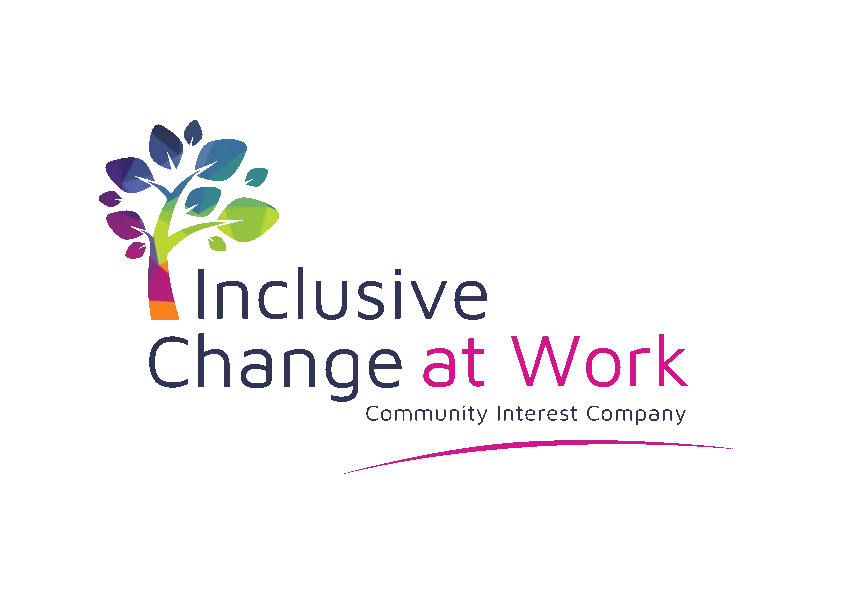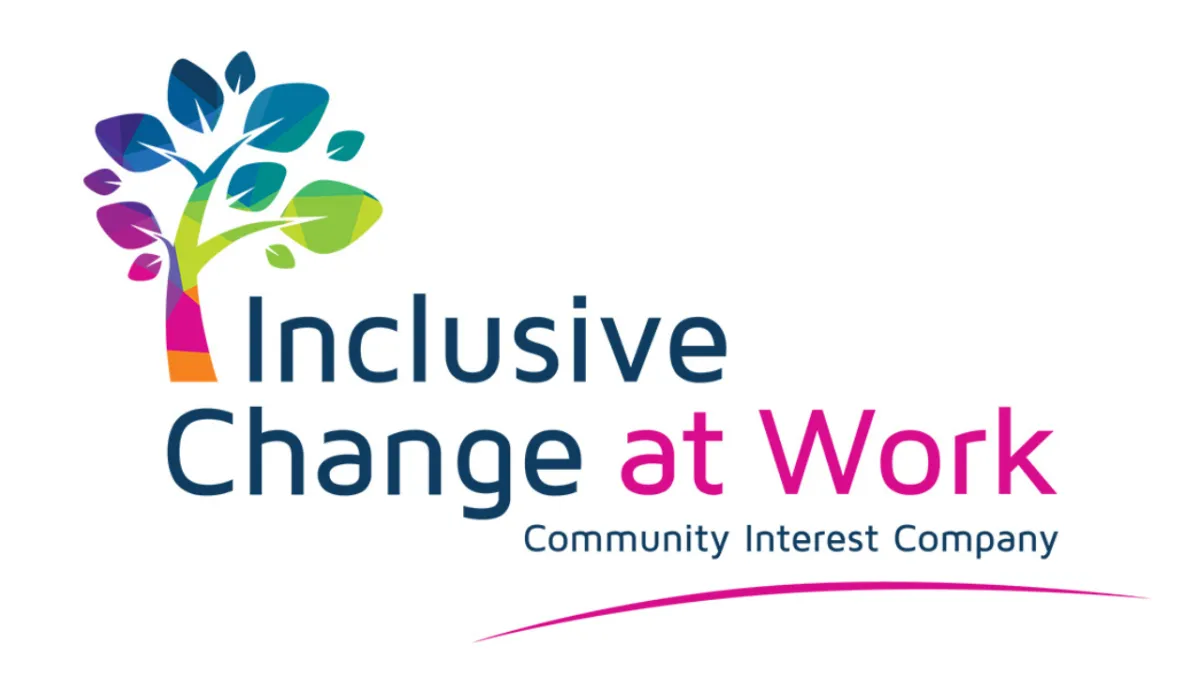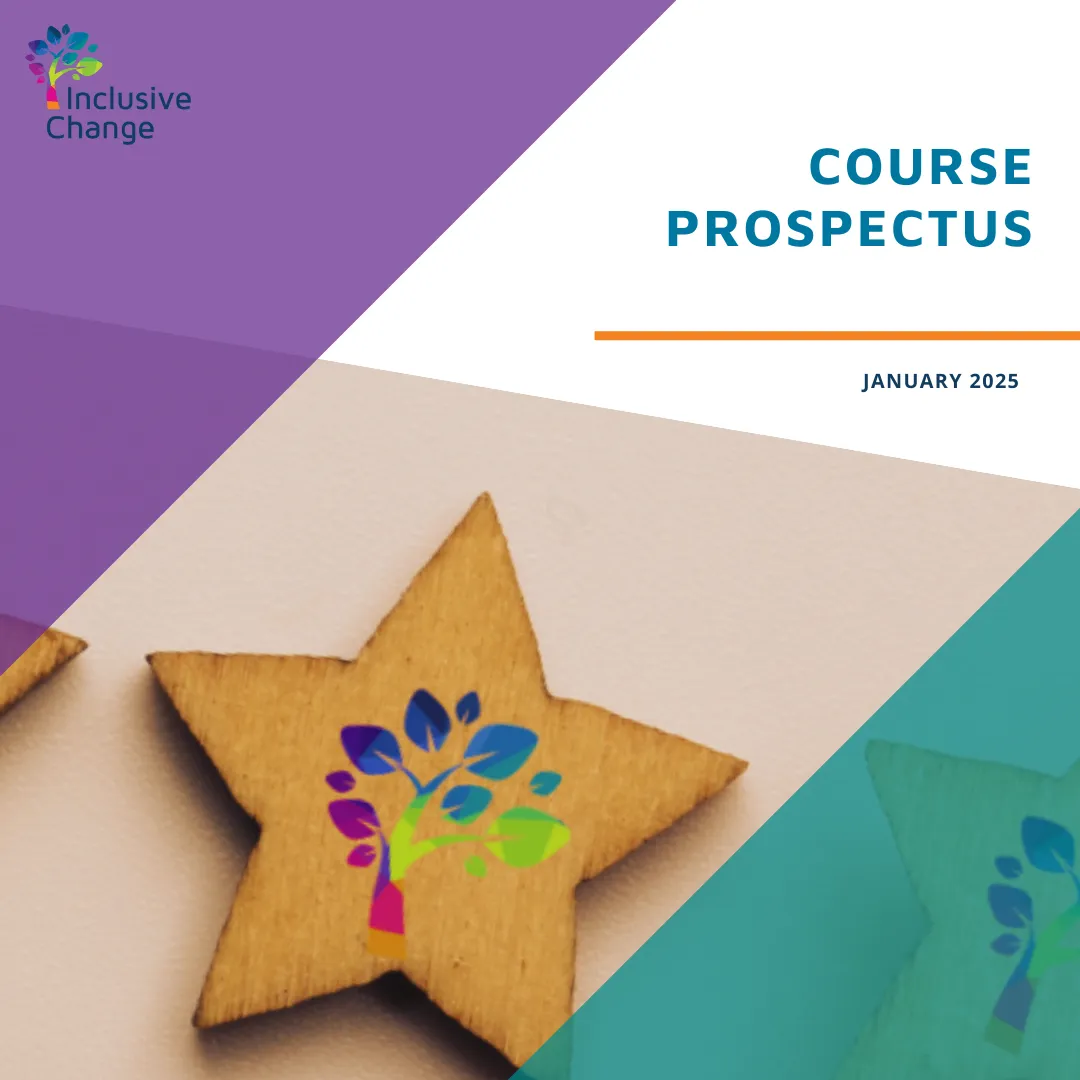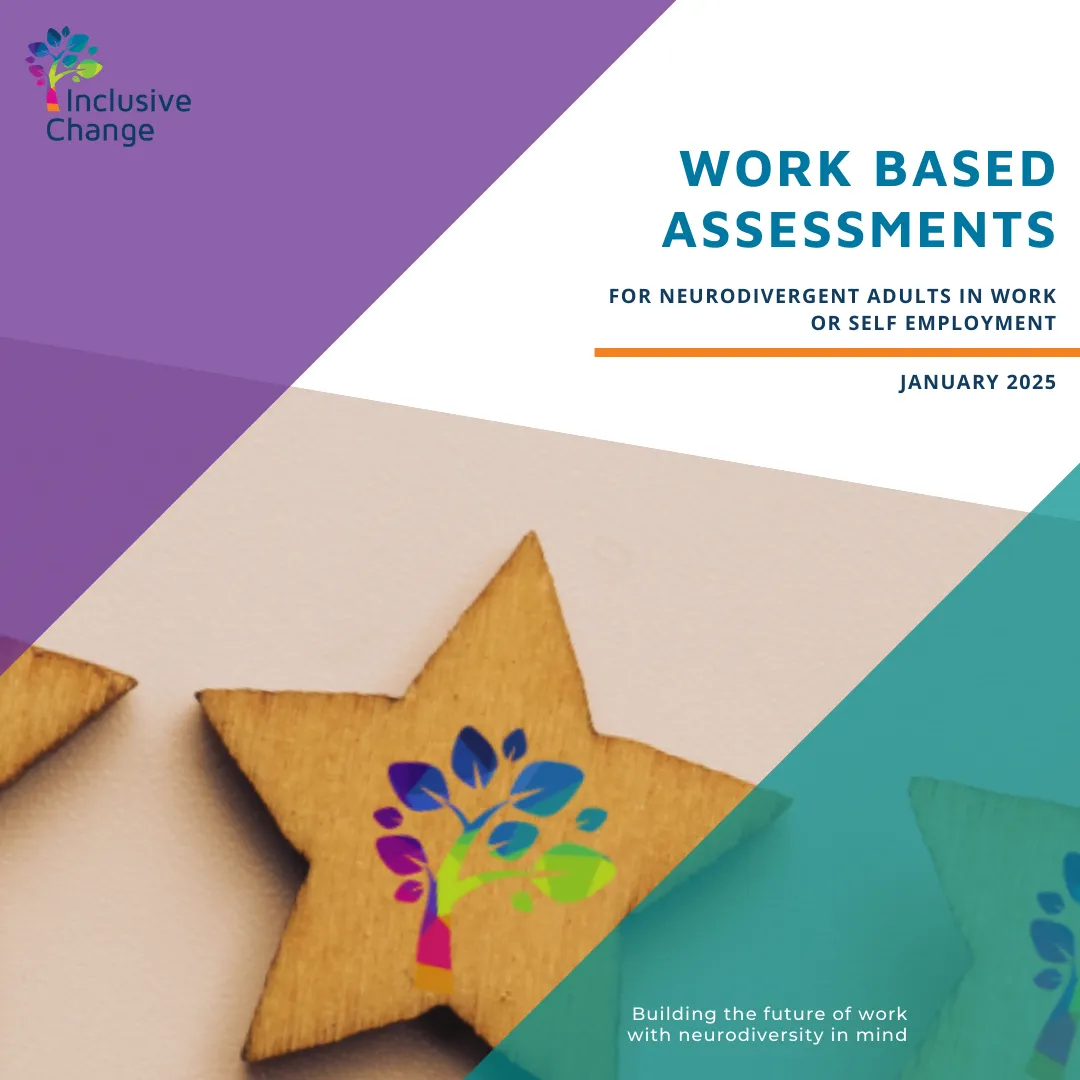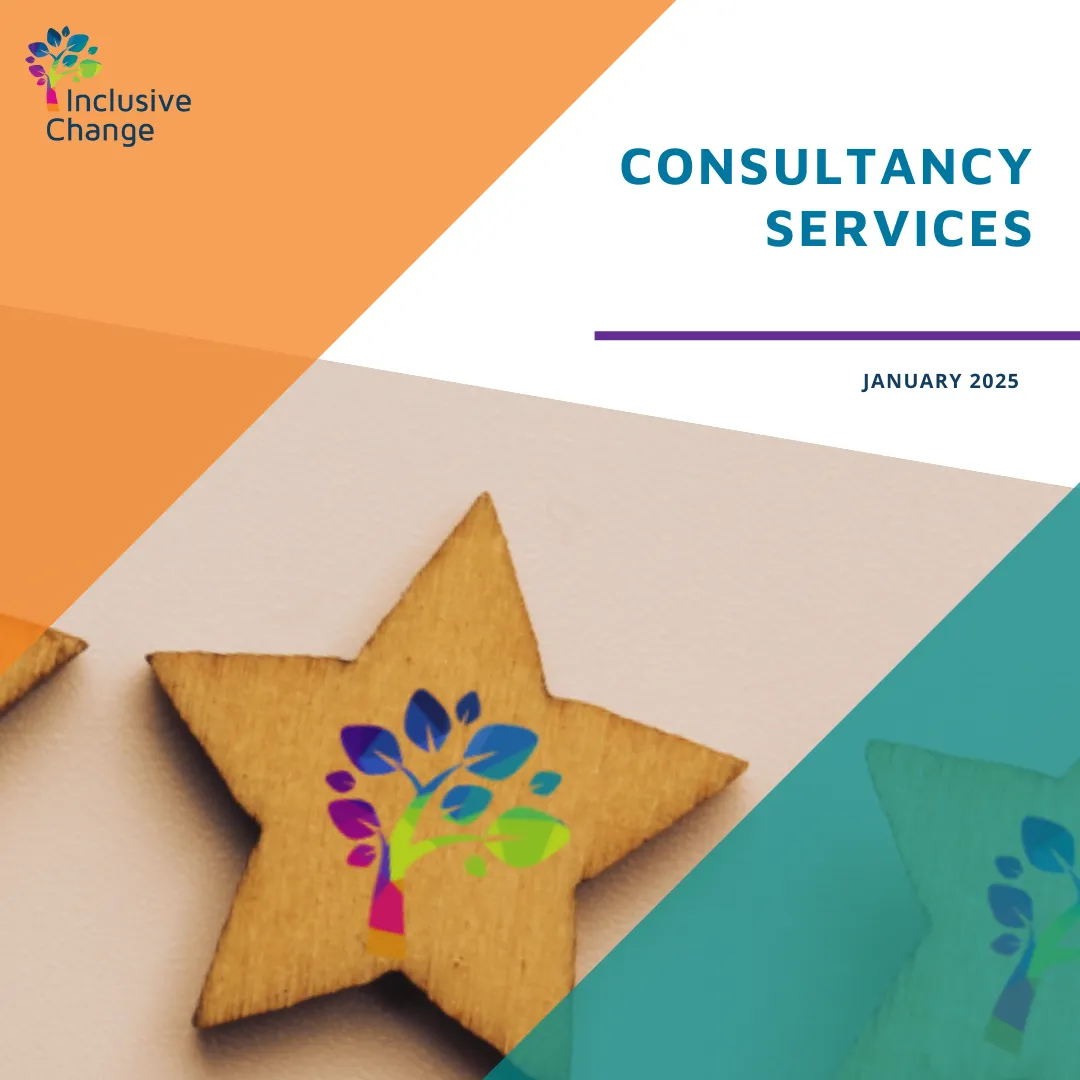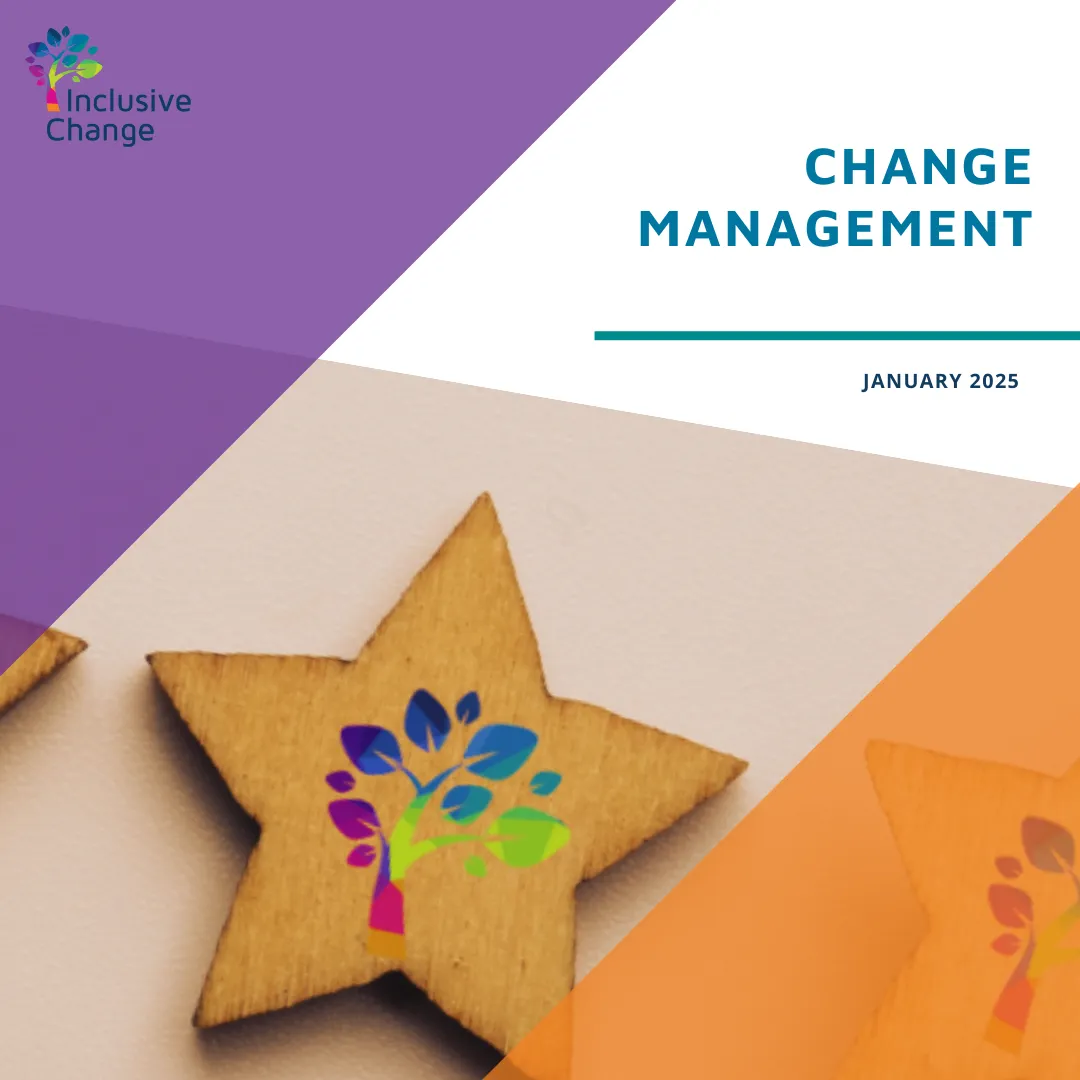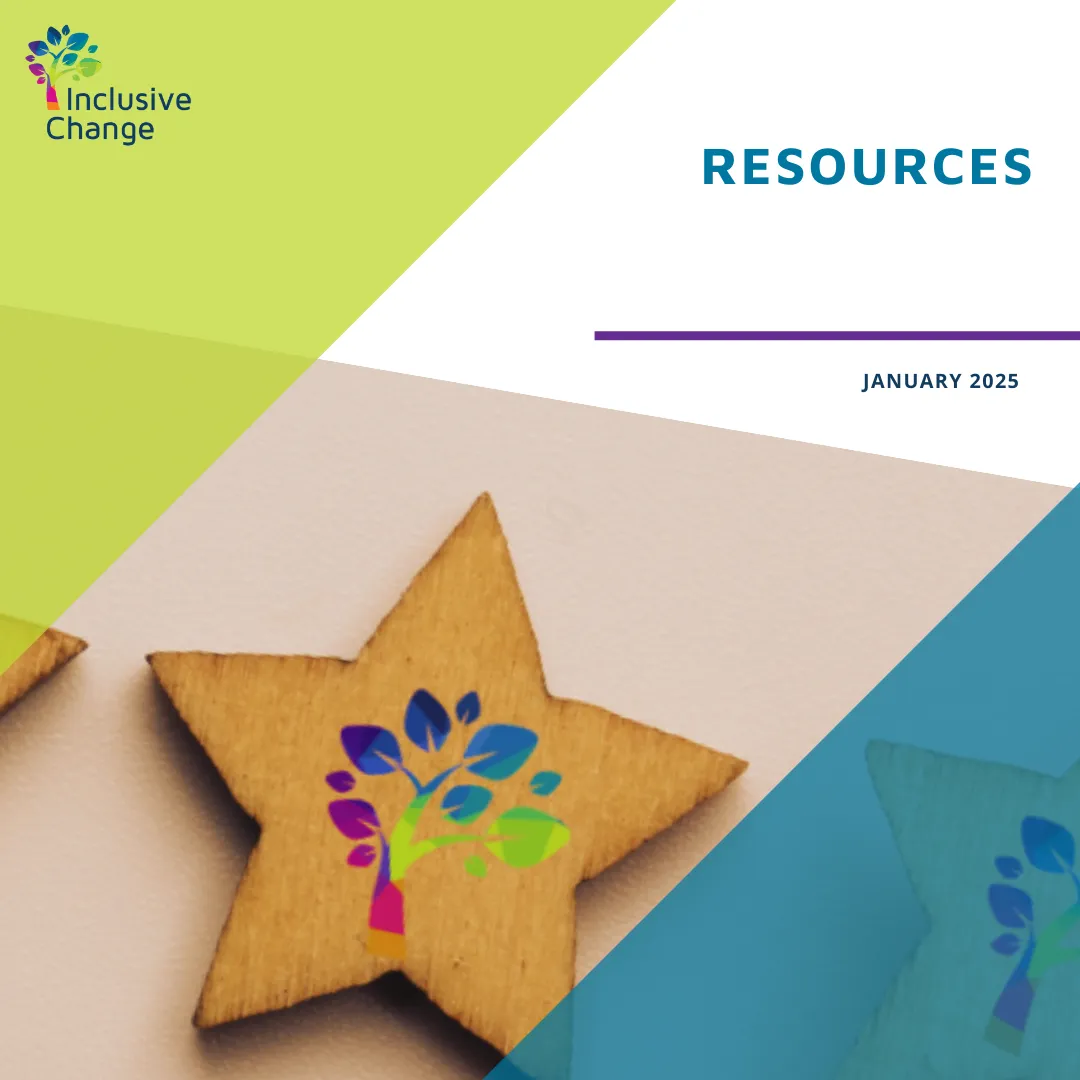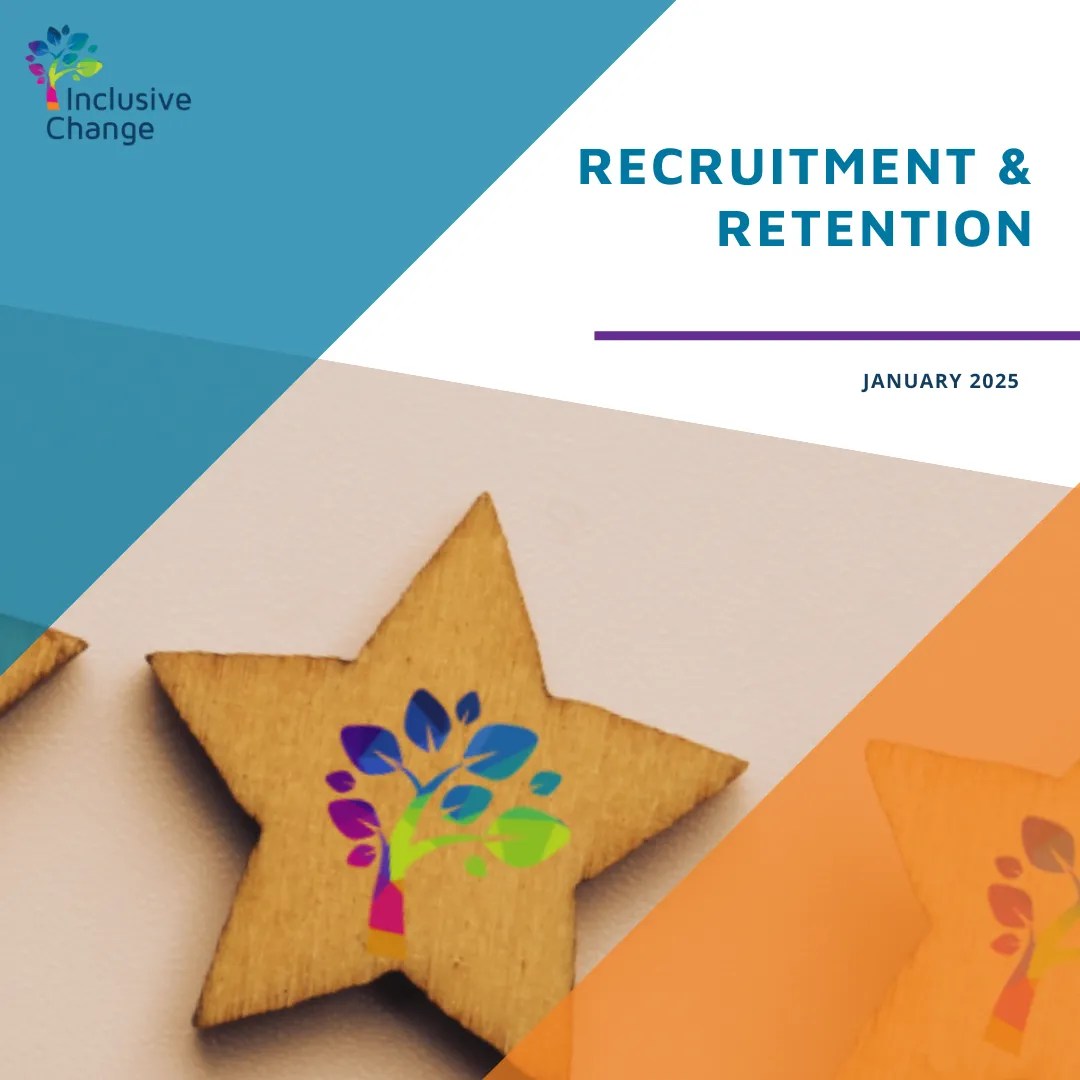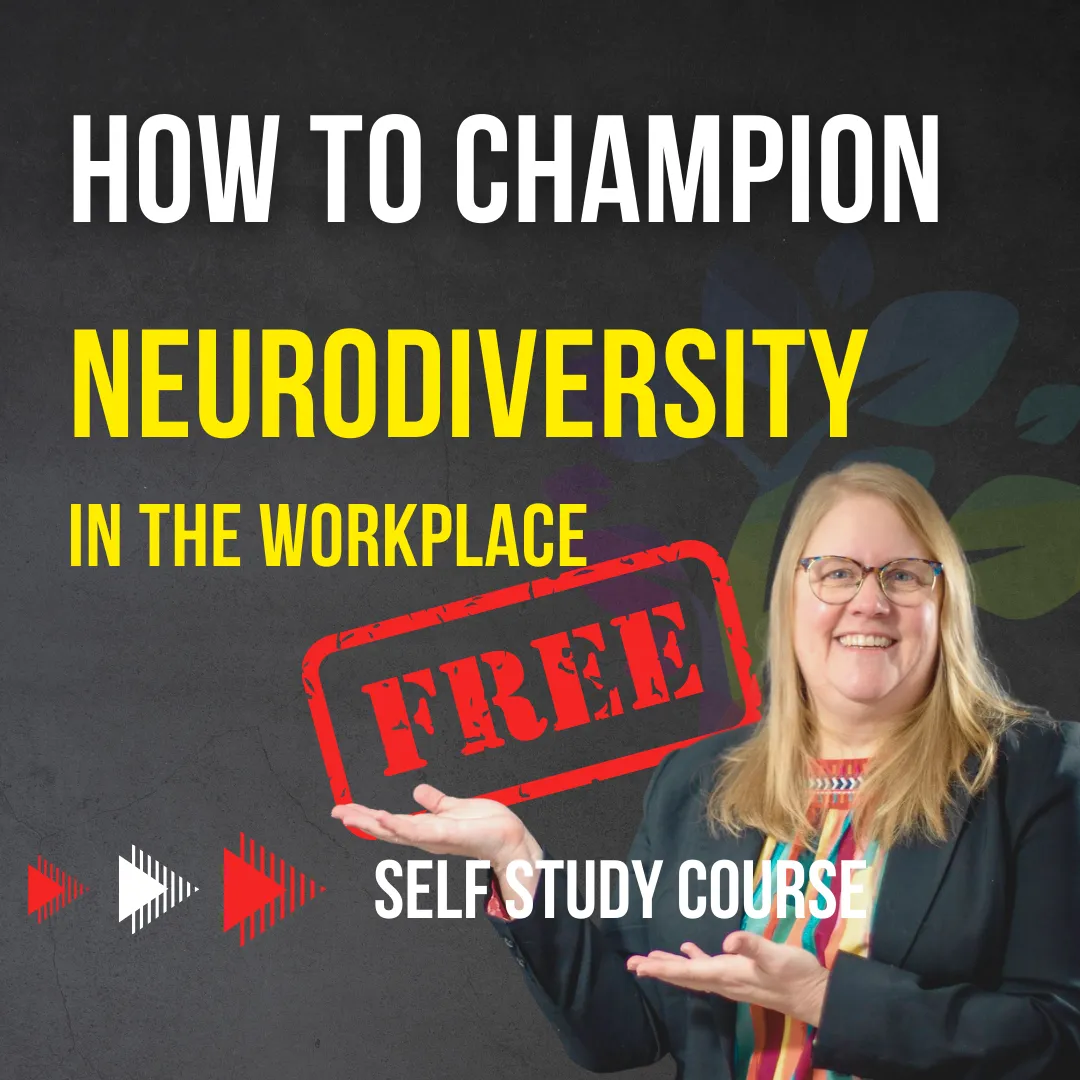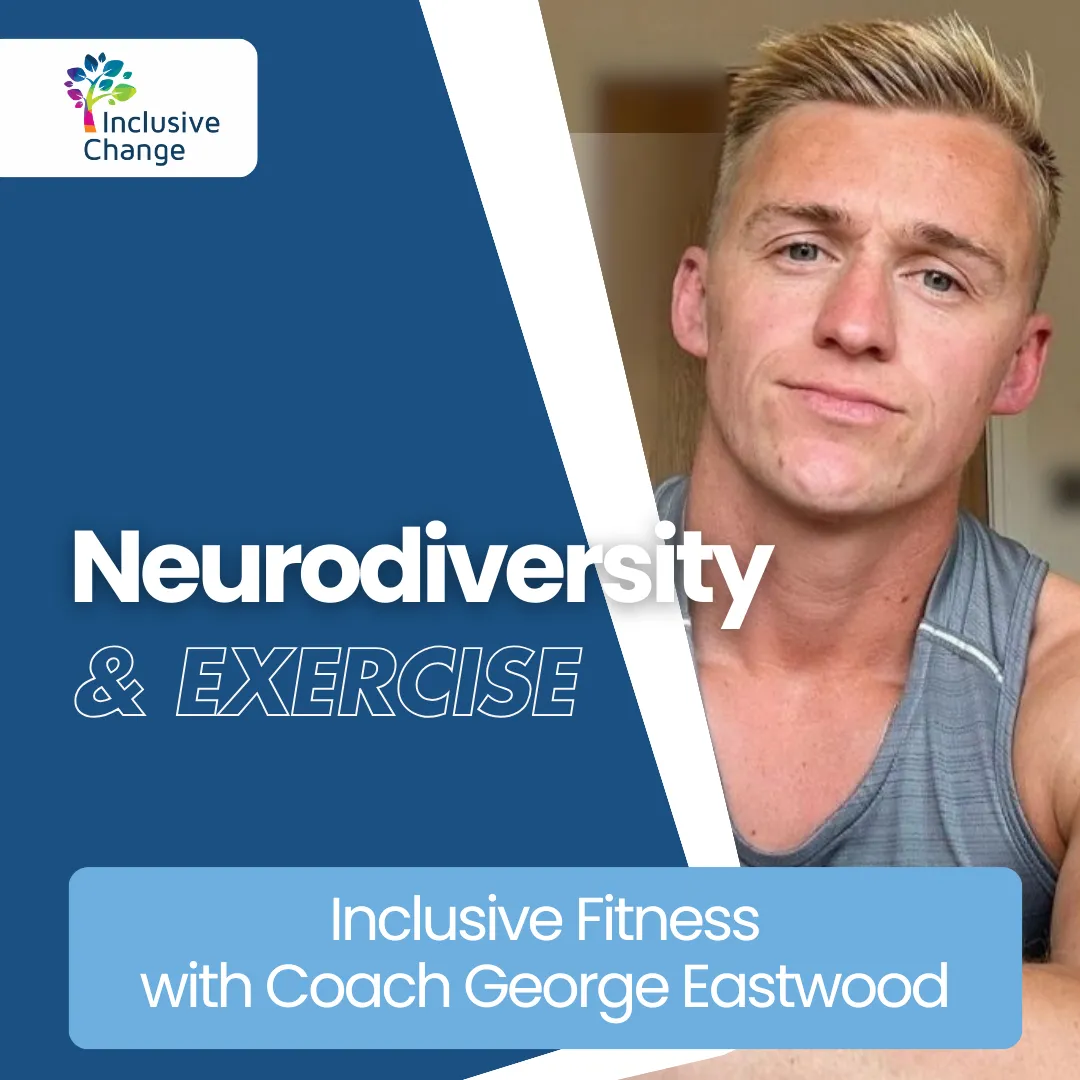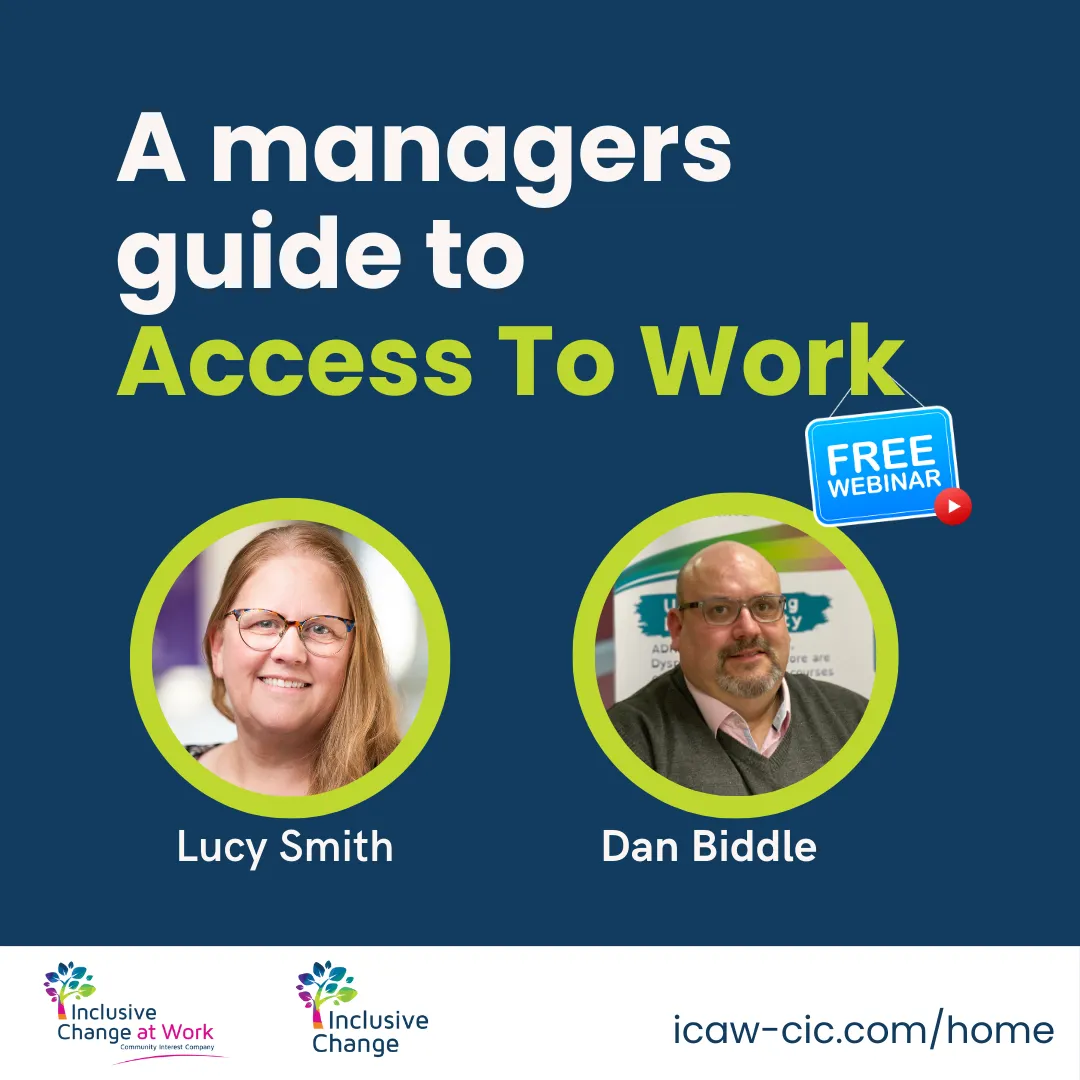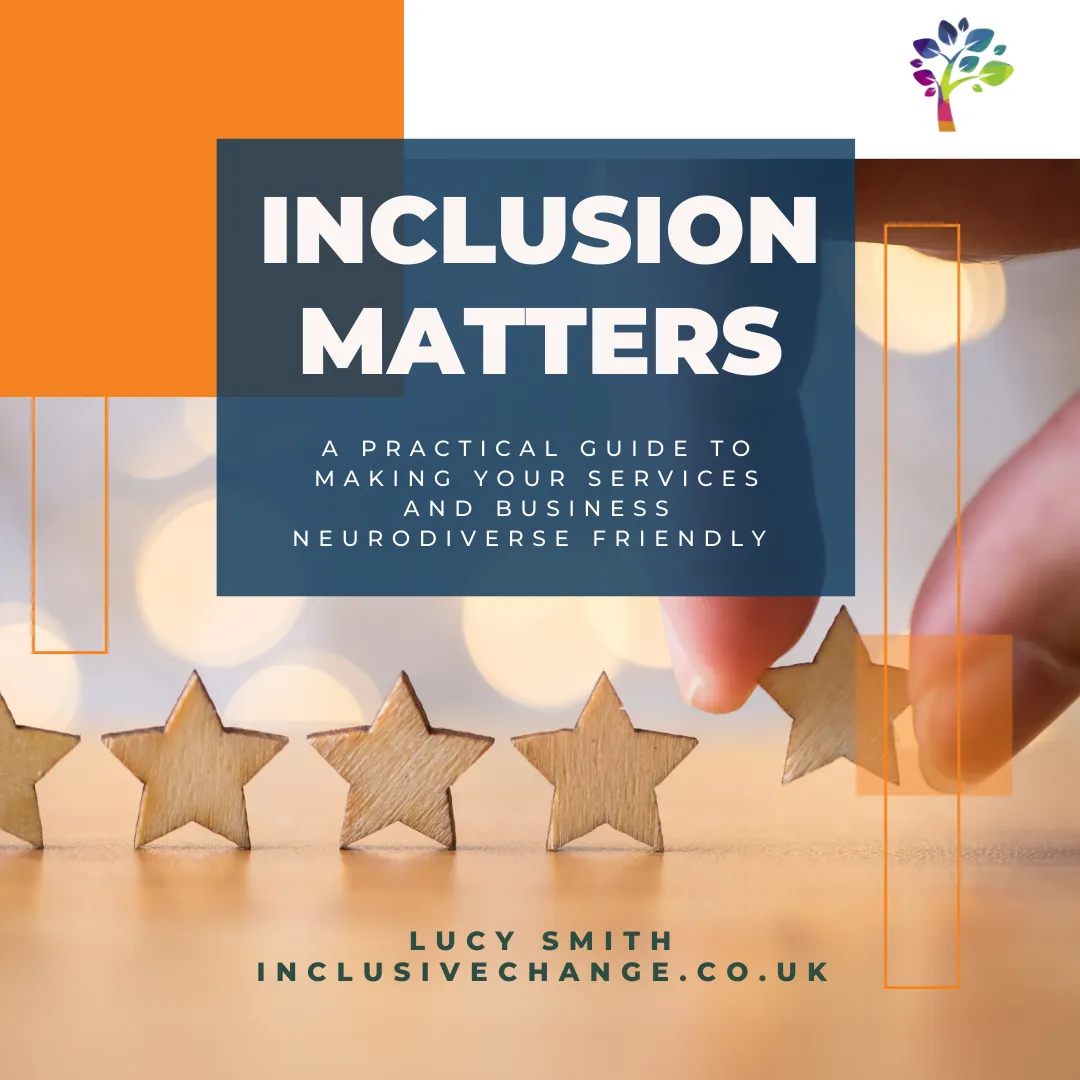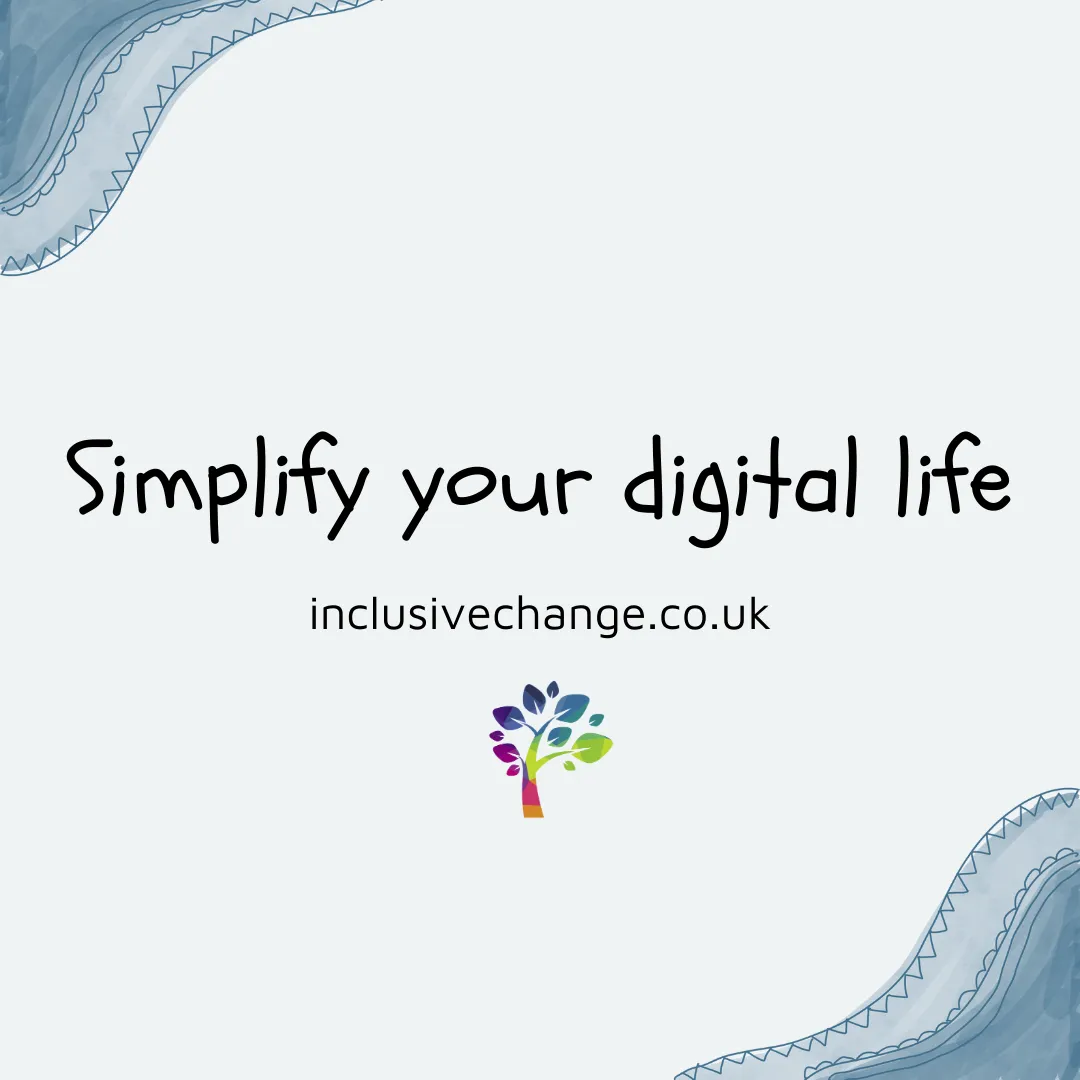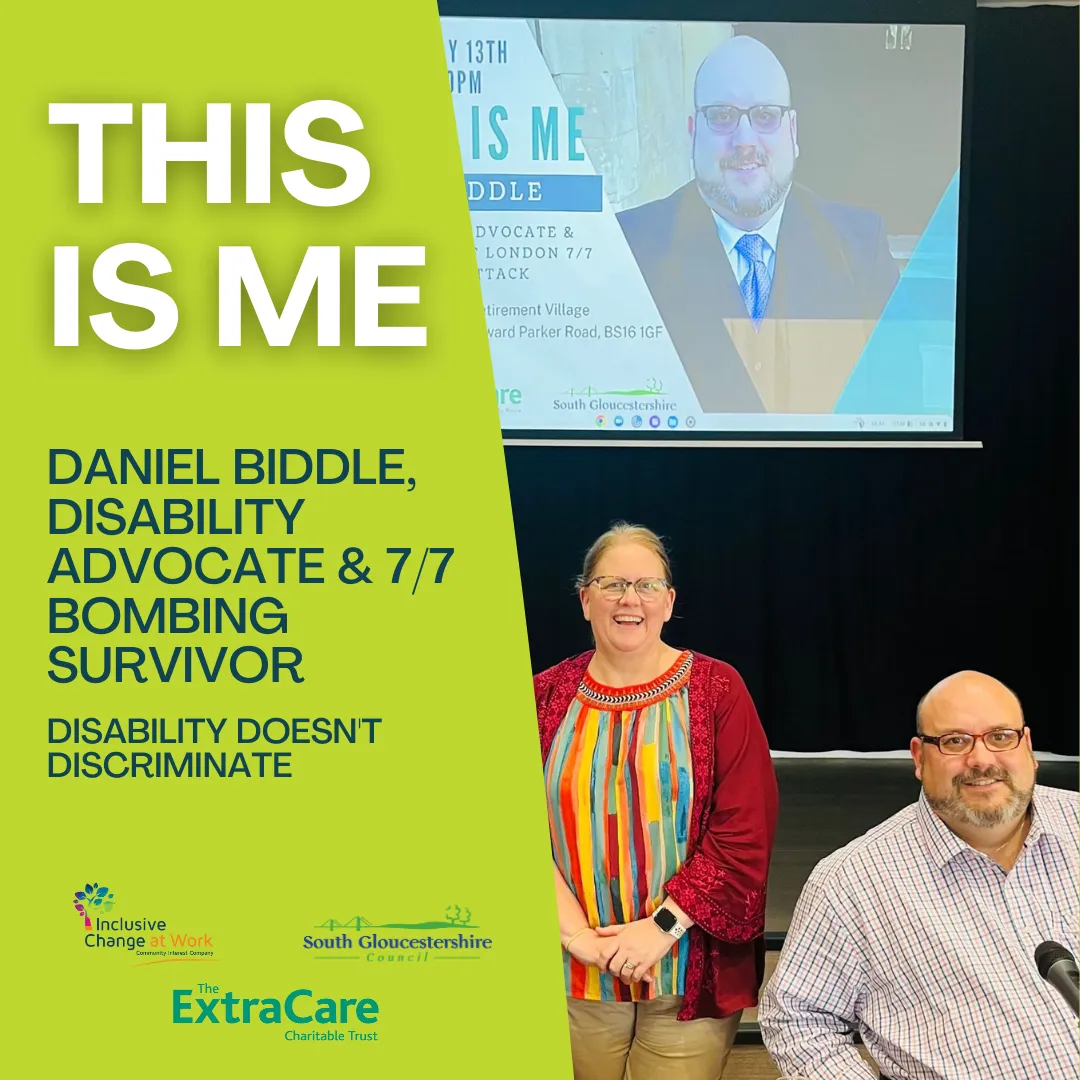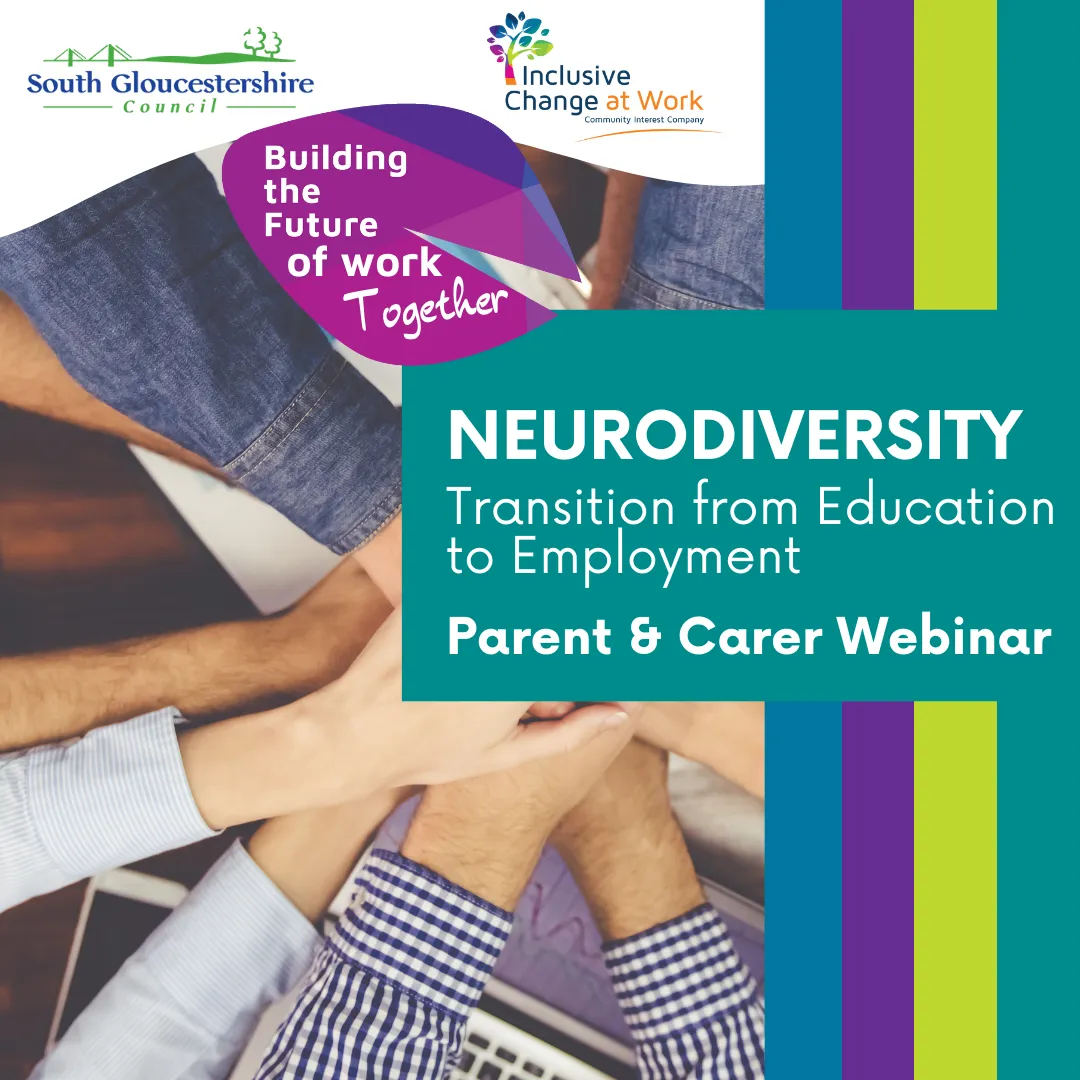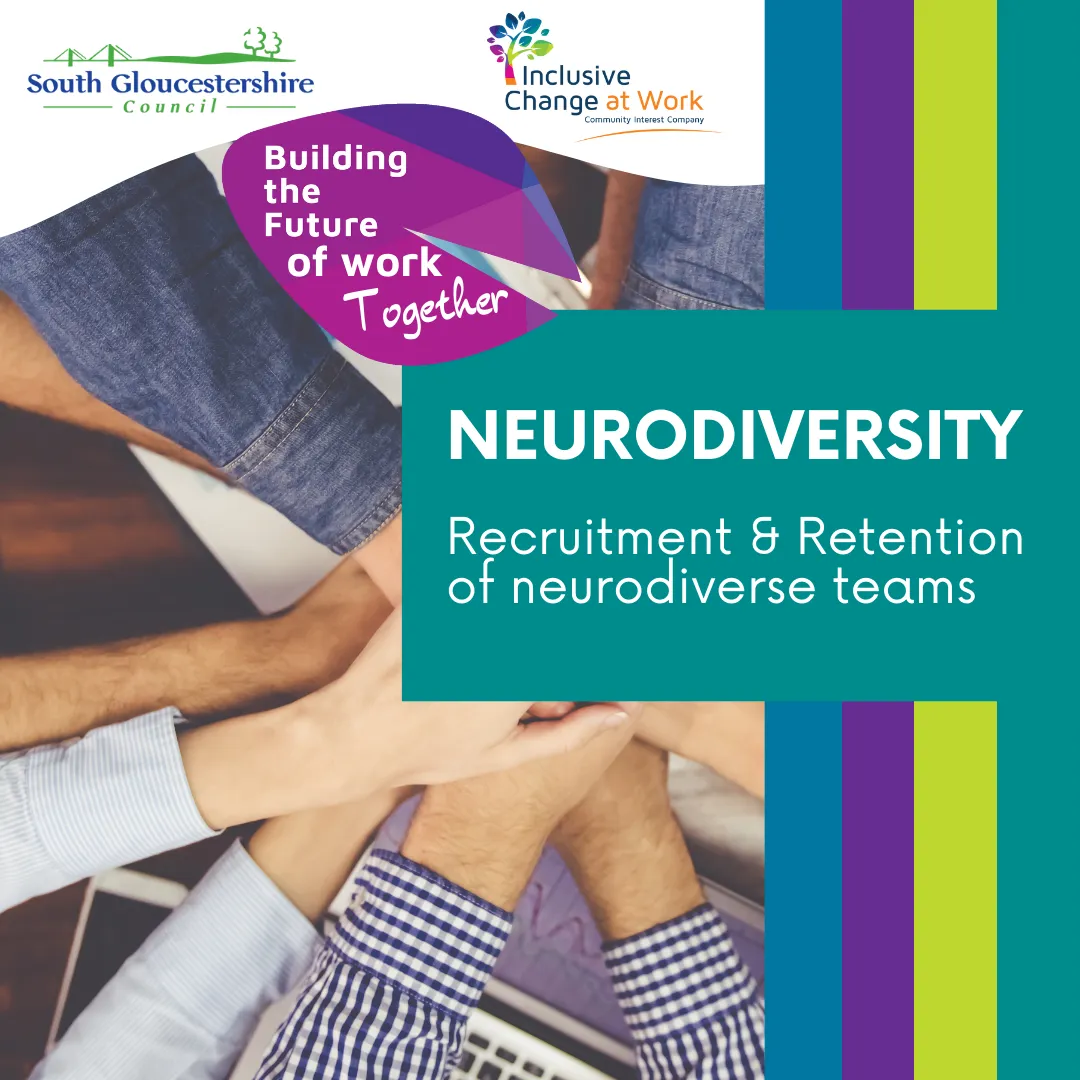Inclusive Change at Work
In the community
We want to thank you for attending our workshops in Emersons Green Village Hall, made possible with funding from Emersons Green Town Council. It has been wonderful to meet so many people and spark meaningful conversations about Inclusion.
We offer a variety of ways to collaborate and support your journey. Be sure to join our mailing list to stay informed about our latest projects, exclusive offers, and exciting initiatives.
To help you take your next steps, we’ve curated this page with valuable resources, insights, and new projects, designed to inspire and empower your conversations about neurodiversity. Dive in, explore, and Keep the Conversation Going!
A Recap of the Slides & Discussions
Let's Talk About Neurodiversity: Building an Inclusive Community Together
Date: 16th January 2025
Speaker: Lucy Smith
Key Takeaways From The Evening
Neurodiversity is Common but Overlooked – 1 in 7 people in the UK are neurodivergent, yet many face barriers in employment and inclusion.
Workplace Challenges Persist – Long assessment wait times, lack of disclosure (76%), and limited employer focus (49%) highlight the need for change.
Inclusive Workplaces Matter – Reasonable adjustments and open discussions help create supportive environments.
Younger Generations are Driving Change – 53% of Gen Z identify as neurodivergent, making inclusion more important than ever.
Action is Key – Safe spaces, advocacy, and meaningful support systems help neurodiverse communities thrive
Supporting Neurodivergent Families
Date: 30th January 2025
Speakers: Lucy Smith & SGPC
Key Takeaways From The Evening
Inclusive Spaces Foster Support – Creating environments where neurodivergent individuals feel safe and valued is essential for meaningful inclusion.
Resilience is Key – Building resilience through learning, coping strategies, and supportive frameworks helps neurodivergent families navigate challenges.
Workplace and Education Accessibility Matters – Reasonable adjustments in schools and workplaces ensure neurodivergent individuals can succeed without unnecessary barriers.
Open Dialogue Encourages Understanding – Safe spaces for discussion help break stigma, allowing neurodivergent individuals and allies to share experiences and seek support.
Ongoing Support and Resources Make a Difference – Access to helpful resources, events, and advocacy networks empowers neurodivergent communities to thrive.
Building the Future of Work With Neurodiversity in Mind
Date: 6th February 2025
Speakers: Lucy Smith & Andy Jackson
Key Takeaways From The Evening
Neuroinclusion is a Business Advantage – Embracing neurodiversity leads to increased innovation, productivity, and employee retention. Yet, many workplaces unintentionally create barriers for neurodivergent employees.
The Social Model of Disability Matters – Disability is not about the individual but the barriers in their environment. Simple workplace adjustments, like sensory-friendly spaces and flexible communication styles, can unlock neurodivergent talent.
Inclusion is Needed at Every Career Stage – From recruitment to promotion, neurodivergent employees face unique challenges. Clear job descriptions, structured onboarding, and strengths-based performance reviews help ensure fairness.
Recruitment & Progression Need Reform – Traditional hiring methods often exclude neurodivergent talent. Companies should prioritize skills-based hiring, alternative application methods, and clear promotion pathways.
Actionable Steps Make a Difference – Businesses should start by reviewing hiring practices, improving workplace accessibility, investing in mentorship, implementing inclusive policies, and increasing diverse representation
Menopause and Neurodiversity
Date: 20th February 2025
Speakers: Kirsty Brown, Fitness for Life, & Lucy Smith
Key Takeaways From The Evening
Menopause Can Intensify Neurodivergent Traits – Changes in hormones can amplify difficulties with memory, focus, sensory sensitivity, emotional regulation, and fatigue, making daily life more challenging.
Dopamine & Cognitive Support Are Crucial – Activities like exercise, music, creative outlets, and structured routines help maintain dopamine levels, while a diet rich in protein, omega-3s, and key micronutrients supports brain function.
Self-Regulation Strategies Help Manage Symptoms – Sensory tools, mindfulness techniques, and cognitive-behavioral strategies can help counteract brain fog, mood swings, and attention difficulties.
Hormonal & Cognitive Support Can Be Beneficial – Hormone Replacement Therapy (HRT) may help some individuals, while structured routines, planners, and reminders aid in managing cognitive challenges.
Community & Environmental Adjustments Matter – Reducing sensory overload, seeking peer support, and creating neuroinclusive workplace environments can improve well-being and productivity for neurodivergent individuals going through menopauseHere's some stuff
Digital Wellbeing for Young People
Date: 6th March 2025
Speakers: Lucy Smith & Emily Chittell
Key Takeaways From The Evening
The Impact of Digital Overuse – Excessive screen time, especially on social media, can negatively affect mental health, as seen in Owen’s experience of using their smartphone to escape emotions but ultimately worsening their mood.
Balancing Digital Consumption – It's important to be mindful of how digital tools influence our emotions and well-being, avoiding over-reliance on social media for coping.
Creating Digital Boundaries – Simplifying digital life can improve mental health, making space for healthier habits and real-world connections.
Support and Adjustments – Neurodivergent individuals may benefit from reasonable adjustments and access-to-work accommodations to create a more balanced digital experience.
Reasonable Adjustments and Access to Work for Neurodiverse Minds
Date: 20th March 2025
Speakers: Lucy Smith & Support Team
Key Takeaways From The Evening
Legal Obligation for Employers: Under the Equality Act 2010, employers must make reasonable adjustments to ensure that disabled employees are not at a substantial disadvantage in the workplace.
Defining Reasonable Adjustments: Adjustments can include changes to the workplace, working arrangements, task execution, or providing necessary support and equipment.
Disclosure and Employer Responsibility: Employees need to disclose their disabilities for employers to act on their duty to make adjustments. Employers are not obligated to assume or act on ambiguous signs of a disability.
Balancing Adjustments with Job Requirements: Adjustments should create fairness without lowering the essential standards of a role. Selection criteria should be inclusive but still maintain job integrity.
The Business and Cultural Benefits: Implementing reasonable adjustments fosters an inclusive workplace, reduces staff turnover, and leads to broader innovations that benefit all employees
We would love to hear your feedback about the events, please follow the link on the right to go to our short, 10 questions survey to help us improve our future workshops

🎉 Neurodiversity Celebration Week 🎉
17th - 23rd March 2025
What is it?
Neurodiversity Celebration Week is a worldwide initiative that challenges stereotypes and misconceptions about neurological differences. It aims to transform how neurodivergent individuals are perceived and supported by providing schools, universities, organisations, and others around the world with the opportunity to recognise the many skills and talents of neurodivergent individuals, while creating more inclusive and equitable cultures that celebrate differences and empower every individual.
How did it start?
“I founded Neurodiversity Celebration Week in 2018 because I wanted to change the way learning differences are perceived. As a teenager who is autistic and has ADHD, dyslexia, and dyspraxia, my experience has been that people often focus on the challenges of neurological diversity. I wanted to change the narrative and create a balanced view which focuses equally on our talents and strengths.”
- Siena Castellon, Founder
Get involvolved!
Use the button provided to find out how you can get involved, and register your details for this years events.
Recommended Groups and Services
Articles & Reports
30% More Productive: The ROI of a neurodiverse workforce - 2023
New data suggests that 15% to 20%
of the population may be neurodivergent – up from estimates of 5% to 10% just five years ago. This shift underscores the critical need for employers to broaden the horizons of their diversity, equity and inclusion (DEI) efforts to encompass neuro-inclusion
Half of neurodivergent employees miss work due to lack of support - March 2024
Half of neurodivergent employees have taken time off work due to their neurodivergence, a 5% rise from last year, according to City & Guilds’ Neurodiversity Index. The report also found that 36% received no workplace support, and 18% didn’t know where to seek help.
New Survey by The Harris Poll Reveals Workplace Stigma for Neurodivergent Employees - May 2024
Understood.org, a leading nonprofit empowering more than 70 million neurodivergent people who have learning and thinking differences, such as ADHD and dyslexia, today announced the results of a Harris Poll of over 2,000 U.S. adults ages 18+. The poll shines a light on the challenges and opportunities facing people with learning and thinking differences, such as ADHD, dyslexia, or dyscalculia, in the workplace.

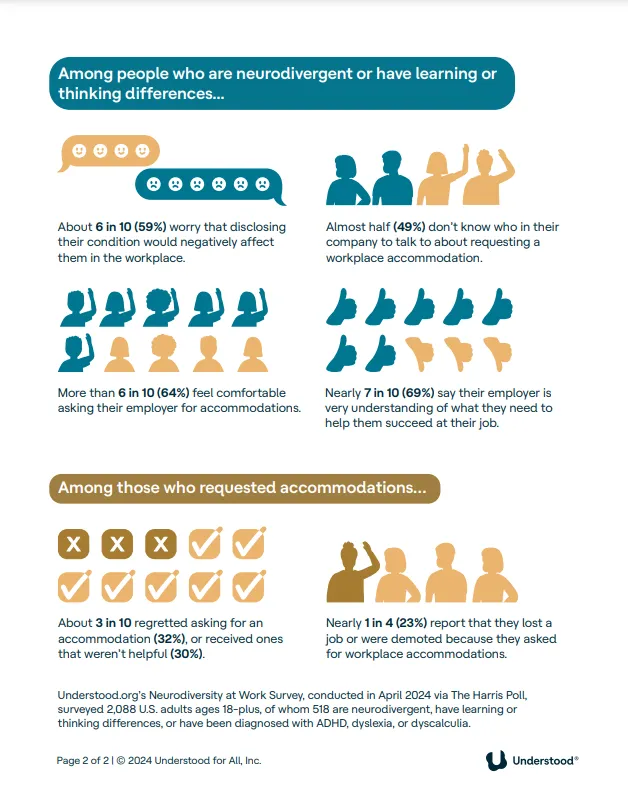
CIPD Neuroinclusion at work report 2024
The reality of neurodiversity means that every interaction at work takes place between people with different brains – yet, typically, very few organisations are thinking about neurodiversity or neuroinclusion. This represents a significant missed opportunity for organisations looking to address their key talent priorities at the same time as addressing inequalities at work faced by neurodivergent people
Meet Your Hosts and Expert
Speakers

Lucy Smith
Lucy is the founder of Inclusive Change and Inclusive Change at Work CIC. She has lived experience of neurodiversity and has been working in the area of neurodiversity for 6 years. Lucy combines a career in change management in internationally renowned organisations with experience in education to create thoughtful and inspiring training and consultancy services.

Daniel Biddle
Daniel is a highly experienced accessibility consultant with extensive experience of disability. Daniel has particular expertise in acquired disability, including acquired neurodiversity. He established the National Disability Employment & Advisory Service in 2022 and focuses on supporting neurodivergent young people & adults into employment.

Kirsty Brown
Kirsty is a proactive, self-motivated individual with managerial experience in motivating teams and providing exemplary service. As a personal trainer and women's health coach, I use an empathetic approach to set and monitor achievable goals, adapting strategies to support clients through life's challenges. My expertise in menopause coaching includes workshops that empower women to confidently make lifestyle changes and navigate difficult times.

Vicky Henderson
Vicky is a multi-award-winning coach, mentor, speaker and trainer. She specialises in working with young people (11-24yrs) helping them grow in confidence, feel happy and generate hope and excitement for a better future.
In addition to working with young people, Vicky also works with parents, schools and employers, to ensure that all young people are afforded the support and help they need to thrive.

Andy Jackson
Andy is a Non-Executive Director of Inclusive Change at Work CIC, as well as an entrepreneurial and leadership coach and a dedicated advocate for neurodivergent individuals.
As a parent to a young adult navigating life with undiagnosed neurodivergence, Andy brings both professional expertise and personal insight to their work.
A skilled coach, facilitator, and trainer, Andy is passionate about enhancing organisational performance and supporting teams to thrive.
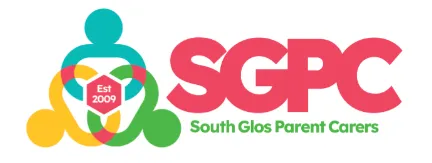
South Glos Parent Carers
South Glos Parent Carers (SGPC), the local parent carer forum that represents & supports parent carers of children and young people with Special Education Needs and Disabilities (SEND) in South Gloucestershire. Driven by a desire to make a difference for every SEND family in South Gloucestershire, SGPC attend meetings across the education, health and social care sectors to ensure service providers understand the challenges families face, so that positive changes can be made. SGPC also offer support to parent carers, via online and drop-in support sessions as well as workshops on a range of SEND topics. The SGPC team are all parent carers themselves, so they truly understand the SEND journey & challenges. From their personal experiences & those of their community, they have gained valuable insight, information and a wealth of SEND knowledge.
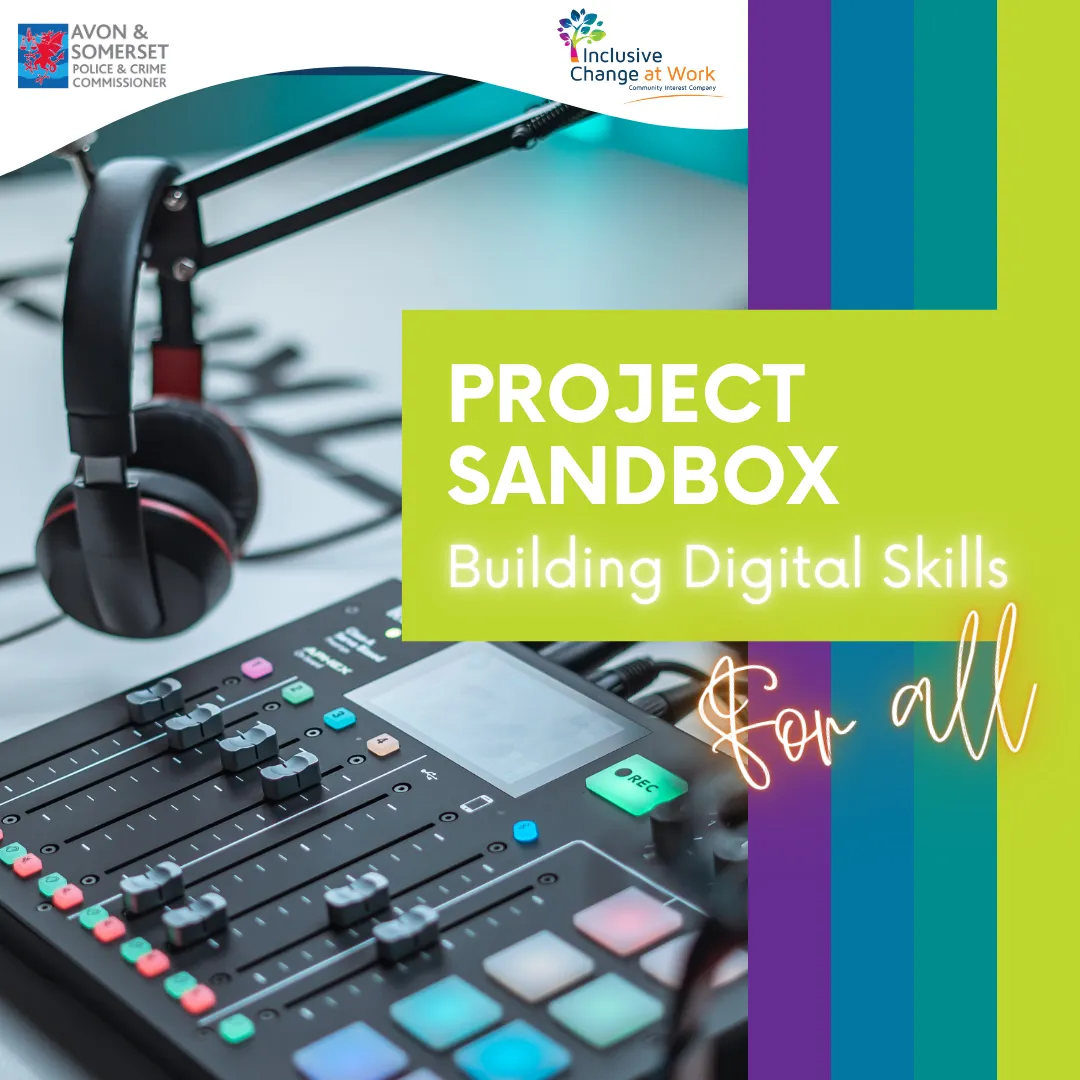
Discover Project Sandbox: Shaping a Safer Digital Future
Inclusive Change at Work CIC proudly presents
Project Sandbox, a ground-breaking initiative designed to champion digital safety and disability inclusion.
In collaboration with the Avon & Somerset Police & Crime Commissioner, we’re creating an engaging series of podcast and radio episodes that dive deep into building safer digital spaces for disabled and neurodivergent individuals.
We invite you to be part of this important conversation and join us in driving meaningful change.
Stay tuned, get involved, and let’s make the digital world a place for everyone.
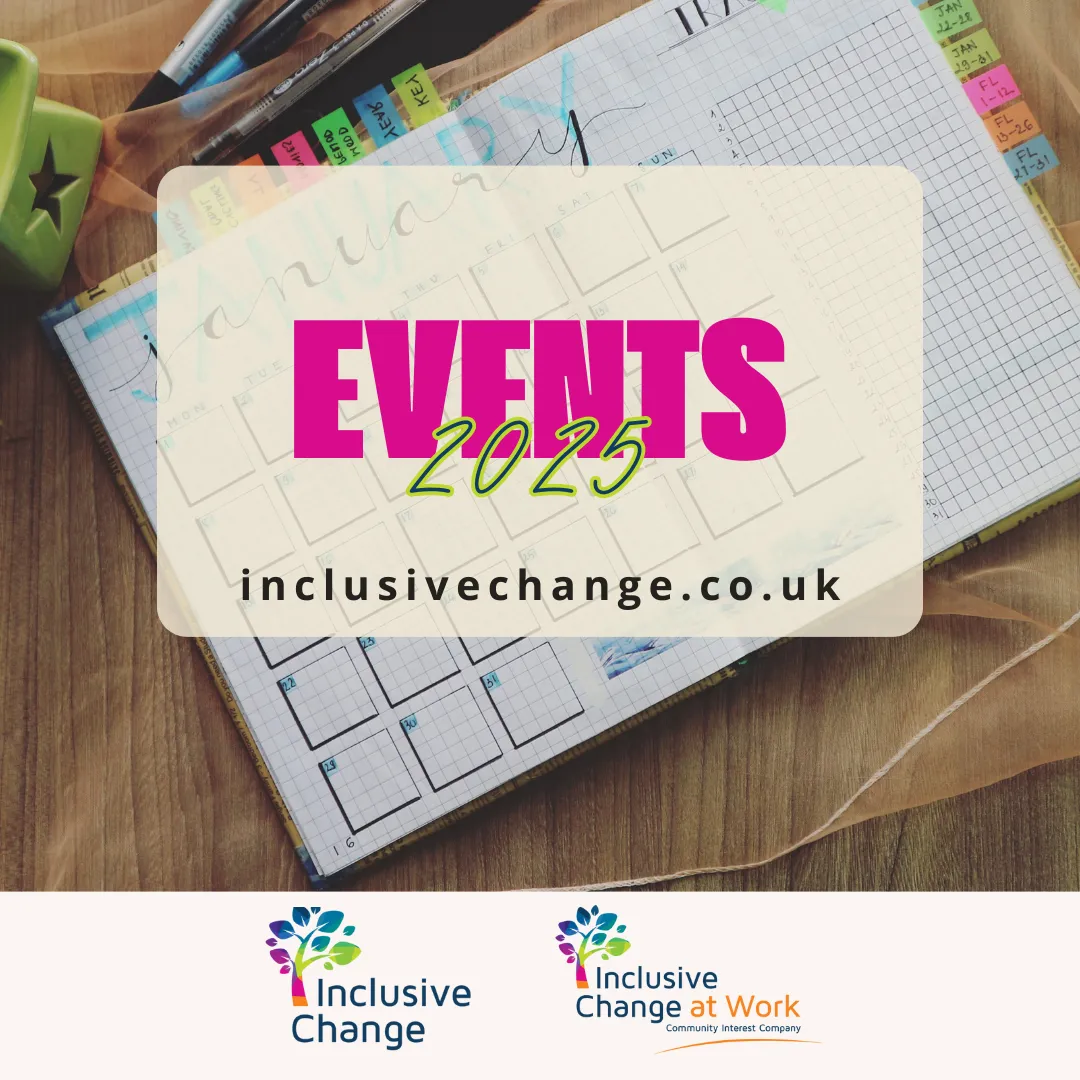
March 2025
17th - 23rd - ND Celebration Week - All over the UK & Online
18th - Creating Inclusive Workspaces - Online
20th - Reasonable Adjustments and Access to Work for Neurodiverse Minds - Emersons Green
31st - Networking Breakfast - Old Down Estate
April 2025
2nd - World Autism Day - United Nations Member States
Free Resources - Guides, Webinars & Courses
Check Out Our Latest Blog Posts

Why Virtual Assistants Should Diversify with Neurodivergent Clients
As virtual assistants (VAs), we pride ourselves on being adaptable, resourceful, and problem-solvers for our clients. But in today’s ever-evolving work environment, one growing segment of the population remains largely untapped—neurodivergent clients. These individuals, who process the world differently due to conditions such as ADHD, autism, dyslexia, and others, are entering the workforce and entrepreneurial spaces in increasing numbers. However, they often require tailored support that many VAs aren’t equipped to provide—until now.
Our upcoming "Diversify Your Business with Neurodivergent Clients" virtual assistant workshop is designed to change that. At Inclusive Change, we have spent years working with neurodivergent clients, providing them with the guidance, structure, and flexibility they need to thrive in their careers. Collaborating with experts like Kate Brewer from Dedik8 Collective, we’ve built a wealth of knowledge about how VAs can successfully support neurodivergent clients. In this blog, we’ll share why diversifying your client base to include neurodivergent individuals not only boosts your VA business but also empowers a largely underserved community.
Establishing Credibility: Why Trust Us?
You might wonder: what makes Inclusive Change and Dedik8 Collective experts in this field? The answer lies in our personal and professional experiences.
Lucy Smith, founder of Inclusive Change, started her career as an officer in the National Crime Agency and later transitioned to roles that focused on change management, working within large organisations like Bristol University. Despite a highly successful career, Lucy found herself facing personal challenges when her children were diagnosed as neurodivergent. The experiences she faced as a SEND (Special Educational Needs and Disabilities) parent transformed her understanding of workplace inclusion, igniting her passion for making the world of work more accessible to neurodivergent individuals.
Inclusive Change was born out of this passion, and today it focuses on preparing businesses to employ and support neurodivergent individuals. Whether working with schools, parents, or employers, Lucy’s team has developed targeted strategies to help neurodivergent individuals thrive in professional settings. This work is underpinned by lived experience and extensive knowledge of both change management and workplace accessibility.
In collaboration with Kate Brewer, the founder of Dedik8 Collective and a former corporate professional with over 25 years of experience, we’ve sharpened our approach to directly benefit neurodivergent business owners and employees. Kate’s journey mirrors Lucy’s—balancing the demands of her career with the needs of a neurodivergent child, she too left her corporate job to build a business that supports vulnerable and neurodivergent clients. The lessons learned from these personal journeys, combined with our practical, hands-on work with clients, have given us unparalleled insights into what works for neurodivergent individuals.
Key Insights from Our Podcast with Kate Brewer
In our recent conversation on the Inclusive Change podcast, Kate and I discussed some of the unique challenges and rewards of working with neurodivergent clients. Here are some key takeaways that illustrate why this niche is so vital—and how VAs can excel within it:
1. Neurodivergent Clients Often Struggle to Identify Their Needs
Many neurodivergent individuals have difficulty pinpointing the kind of support they require. As VAs, we play a crucial role in helping them discover their needs through careful listening and observation. By guiding neurodivergent clients toward greater self-awareness, we can tailor our services to meet their specific challenges, whether it’s managing executive functioning difficulties or organizing their workload.
2. Delegation is Harder for Neurodivergent Clients
Delegation doesn’t come naturally to everyone, but for neurodivergent clients, it can be particularly challenging. Neurodivergent individuals may struggle with letting go of tasks or understanding how to communicate what they need to others. As a VA, you can create a safe, judgment-free space where clients feel comfortable delegating work, knowing that their needs will be met. This requires patience, strong communication skills, and often a high level of adaptability.
3. Body Doubling and Accountability Systems are Game-Changers
For some neurodivergent clients, body doubling—where someone else works alongside them (virtually or physically)—can help them stay focused and productive. Accountability systems, such as regular check-ins or structured work sessions, can also make a significant difference. These unique approaches to support can help neurodivergent individuals overcome procrastination and accomplish tasks that they might otherwise find overwhelming. At Inclusive Change, we teach VAs how to incorporate these systems into their client relationships, offering a higher level of support that is both practical and empowering.
4. Building Trust and Tailoring Communication
Building trust is crucial when working with neurodivergent clients. It’s not just about the work you do—it’s about understanding how they communicate and process information. For instance, many neurodivergent individuals prefer written communication to phone calls, as it allows them more time to process and respond. Similarly, small adjustments, like using dyslexia-friendly fonts or breaking down tasks into manageable steps, can have a huge impact on how effectively you communicate. These are the kinds of insights that we share in our upcoming workshop to ensure you’re well-equipped to support neurodivergent clients.
Why You Should Diversify Your VA Business
Supporting neurodivergent clients is not only incredibly rewarding but also represents a significant growth opportunity for virtual assistants. Neurodivergent individuals make up around 20% of the population, and as more of them enter the workforce or start their own businesses, the need for specialized support is growing. By developing the skills to assist this demographic, you can tap into a largely underserved market and distinguish yourself from other VAs.
Here are some key reasons why diversifying your business with neurodivergent clients is beneficial:
Unique, Loyal Client Base: Neurodivergent clients often have unique needs, and once you prove you understand them, they tend to be extremely loyal. Providing the right kind of support builds lasting, trust-filled relationships.
Personal Fulfillment: Working with neurodivergent clients offers a sense of fulfillment that goes beyond typical client relationships. You’re not just helping someone manage tasks—you’re empowering them to overcome barriers and achieve their potential.
Increased Revenue Streams: With Access to Work grants available in the UK, many neurodivergent clients can access government funding to cover VA services. This can be an excellent way to ensure steady work while making a positive impact.
Join Us: Expand Your Skills, Grow Your Business
Our upcoming "Diversify Your Business with Neurodivergent Clients" virtual assistant workshop is the perfect place to start. Through hands-on strategies, real-life examples, and direct feedback, we’ll teach you how to tailor your VA services to meet the unique needs of neurodivergent clients. You’ll learn everything from how to set up accountability systems to navigating Access to Work grants and implementing communication strategies that work.
Ready to take the next step? Register today and unlock the tools you need to support neurodivergent clients, grow your VA business, and make a meaningful difference in the lives of those who need it most.
Register today for our VA Course.
Inclusive Change At Work CiC
Bradbury House
Wheatfield Road
Bradley Stoke
Bristol
BS32 9DB
Companies House: 13271923
ICO registration: ZZB293922
UK register of Learning providers
UKRLP: 10090653
